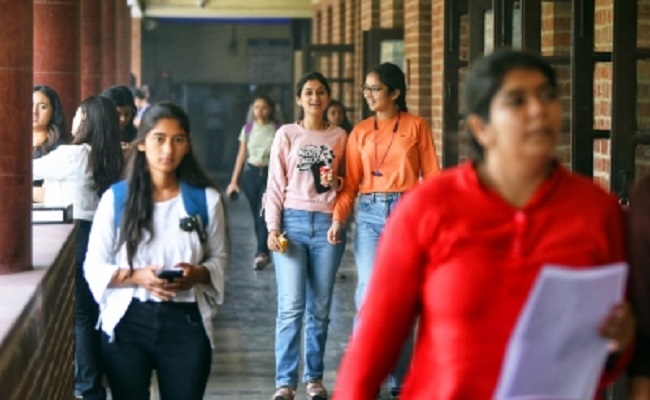
The 2025 US student visa season has gotten off to a notably slow start, with new data showing a 27% decline in the number of Indian students granted F-1 visas between March and May compared to the same period last year.
According to the US State Department, only 9,906 F-1 visas were issued to Indian nationals during this three-month window — fewer even than the 10,894 visas granted during the same period in 2022, when the post-Covid recovery was still underway. In contrast, 14,987 student visas were issued in 2023, and 13,478 in 2024.
This sharp drop coincides with tightened student visa procedures under the second Trump administration.
Indian students — some of whom have had visas revoked — are facing greater scrutiny, often linked to alleged involvement in pro-Palestine protests or interactions with law enforcement.
Between January and September 2024, 64,008 Indian students were granted F-1 visas, compared to 103,000 in 2023 and 93,181 in 2022, reflecting a steady downward trend.
Education consultants and students point to increasing uncertainty not only due to the Trump administration’s return but also because of changes that had already begun taking shape last year.
Mamta Shekhawat, founder of study abroad platform Gradding.com, told Business Standard that while the 27% drop may appear directly tied to Trump’s re-election, visa denial rates were rising even earlier.
She explained that the decline accelerated sharply after May 2025, when the US government paused pending visa interviews and implemented stricter vetting measures. These led to widespread delays and cancellations.
Mary Gogoi, head of admissions at eduVelocity Global, noted that the Trump administration’s strict visa stance, proposals to end the OPT (Optional Practical Training) program, and renewed focus on limiting work visas have contributed to growing anxiety among international students.
She added that even without official policy changes, the fear of what might lie ahead is causing hesitation, particularly among middle-class applicants.
Visa processing delays have also been attributed to procedural slowdowns and increased vetting. Rozy Efzal, co-founder of Invest4Edu, said that processing times have grown longer and some interviews were temporarily suspended.
Gogoi added that US authorities are now closely reviewing applicants' social media activity—whether their accounts are public or private — which in some cases is believed to be a factor in visa denials.
She also noted a rising concern over student loans, which are increasingly being viewed unfavorably during visa evaluations.
A two-week pause on new visa applications from May 27 to June 18 further slowed the process, as US embassies rolled out enhanced social media vetting.
The US Embassy in New Delhi even advised visa applicants in the F, M, and J categories to make their social media profiles public to facilitate screening.
Meanwhile, several students whose visas were revoked have filed lawsuits, even as American universities grapple with funding cuts and stricter oversight of international admissions.
When asked about the situation, the US Embassy in India told The Indian Express that overseas posts have resumed scheduling F visa applications and urged students to apply early and prepare for longer wait times.
This tightening of the US student visa pipeline is pushing many Indian students to consider alternative destinations.
Mamta Shekhawat observed that many are now looking toward New Zealand, Ireland, Germany, Australia, and France.
While rejections and visa delays play a part, she said, there's also a growing preference for a diversified portfolio of study destinations beyond the traditional US-UK corridor.
Gogoi echoed this view, noting that students today are more pragmatic, financially cautious, and globally mobile.
Yet, despite the challenges, the United States continues to hold strong appeal for Indian students, especially in STEM and research-focused programs.
“There’s curiosity to explore other destinations with a similar academic reputation, but OPT and career pathways in the US keep it in the spotlight,” Efzal said.
Shekhawat concluded by emphasizing that the global education landscape isn’t shrinking. Rather, it is expanding — and India remains at the heart of that growth story.














